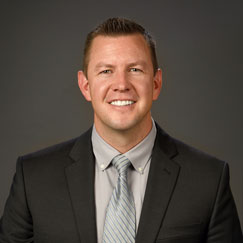From Pain to Gain: Exploring Knee Replacements for Seniors and Athletes
Feeling like your knees can’t keep up with your active lifestyle or everyday activities? You’re not alone. Whether you’re an athlete sidelined by knee pain or a senior struggling with everyday movements, the prospect of needing a knee replacement can be daunting. However, understanding your options and the procedures available can help alleviate some of these concerns. In this blog post, we’ll break down everything you need to know about knee replacements—from what a total knee replacement entails to how Plano Orthopedic & Sports Medicine Center can assist you in your recovery.
What is a Total Knee Replacement?
Understanding the Basics
A total knee replacement, also known as knee arthroplasty, is a surgical procedure that replaces the damaged or diseased knee joint with artificial components. This surgery is often recommended for people suffering from severe arthritis or significant knee injuries that impair daily activities.
The Procedure in Detail
During the surgery, your orthopedic surgeon will remove the damaged cartilage and bone from the surface of your knee joint. These surfaces are then replaced with an artificial joint made of metal and plastic. This new joint mimics the function of a natural knee, allowing for smoother movement and reduced pain.
Why Consider a Total Knee Replacement?
The primary goals of this surgery are to alleviate pain, restore function, and improve the quality of life. For athletes, it means getting back to the sports they love. For seniors, it translates to regaining the ability to perform everyday tasks comfortably.
Types of Knee Replacement
Partial Knee Replacement
Unlike a total knee replacement, a partial knee replacement involves only replacing the damaged part of the knee. This option is generally suitable for individuals with damage confined to a single compartment of the knee.
Total Knee Replacement
A total knee replacement involves a more comprehensive approach, replacing all parts of the knee joint. This is ideal for those with widespread arthritis or multiple areas of damage.
Revision Knee Replacement
Sometimes, a knee replacement may fail or wear out over time. A revision knee replacement involves replacing the old artificial joint with a new one. This procedure is more complex and requires specialized skills and experience.
Preparing for Knee Replacement Surgery
Initial Consultation
The first step in preparing for knee replacement surgery is to consult with an orthopedic surgeon. During this consultation, your medical history, symptoms, and previous treatments will be reviewed to determine if surgery is the best option for you.
Pre-Surgery Tests
Before the surgery, a series of tests will be conducted to ensure you are in good health. These tests may include blood work, X-rays, and an EKG. Your surgeon will also provide guidelines on medications, diet, and exercises to prepare you for the operation.
Mental Preparation
Surgery can be mentally taxing, so it’s crucial to prepare yourself psychologically. Discuss any concerns with your healthcare provider and seek support from family and friends to ease your anxieties.
The Day of Surgery
What to Expect
On the day of your surgery, you will be admitted to the hospital and prepped for the procedure. Anesthesia will be administered to ensure you are comfortable and pain-free during the operation.
The Procedure
The surgery usually lasts between one to two hours. Your surgeon will follow the pre-determined plan to replace the damaged knee joint with artificial components.
Post-Surgery Care
After the surgery, you will be moved to a recovery room where your vital signs will be monitored. Pain management strategies will be employed to keep you comfortable.
Post-Operative Care and Recovery
Hospital Stay
Most patients stay in the hospital for a few days following the surgery. During this time, physical therapists will begin light exercises to start the rehabilitation process.
At-Home Care
Once discharged, you will need to follow a strict regimen of medications, exercises, and routine check-ups. Adhering to these guidelines is crucial for a successful recovery.
Physical Therapy
Physical therapy plays a significant role in your recovery. Therapists will guide you through exercises designed to restore mobility and strength in your new knee.
The Role of Nutrition in Recovery
Essential Nutrients
A balanced diet rich in essential nutrients like protein, calcium, and vitamins can significantly aid your recovery. These nutrients help in tissue repair and bone strengthening.
Hydration
Staying hydrated is equally important. Proper hydration aids in circulation and helps in the efficient transport of nutrients to the healing tissues.
Supplements
Consult with your healthcare provider about any supplements that may benefit your recovery. Common recommendations include omega-3 fatty acids and glucosamine.
Managing Pain and Discomfort
Medication
Pain management medications will be prescribed to help manage discomfort in the initial stages of recovery. Always follow your doctor’s instructions regarding dosage.
Cryotherapy
Cold therapy, or cryotherapy, can effectively reduce swelling and manage pain. Applying ice packs to the affected area can help decrease inflammation.
Alternative Therapies
Complementary therapies like acupuncture and massage may also provide relief from pain and discomfort. Consult with your healthcare provider before starting any alternative treatments.
Expected Outcomes and Long-Term Care
Improved Mobility
Most patients experience a significant improvement in mobility and a reduction in pain within a few months of the surgery.
Longevity of the Artificial Joint
With proper care, artificial knee joints can last anywhere from 15 to 20 years. Regular check-ups with your orthopedic surgeon can help monitor the condition of the joint.
Lifestyle Adjustments
Incorporating low-impact exercises, maintaining a healthy weight, and avoiding activities that put excessive stress on the knee can prolong the lifespan of your new knee joint.
How Plano Orthopedic & Sports Medicine Center Can Help
Expertise and Experience
Plano Orthopedic & Sports Medicine Center boasts a team of highly qualified orthopedic surgeons specializing in knee replacements. Their extensive experience ensures the best possible outcomes for patients.
Comprehensive Care
From initial consultation to post-operative care, Plano Orthopedic & Sports Medicine Center provides a holistic approach to knee replacement surgery. Their integrated services include physical therapy, nutritional guidance, and pain management.
Patient-Centered Approach
The center prioritizes patient education and empowerment, ensuring you are well-informed and comfortable throughout the process. Personalized treatment plans are created to cater to individual needs and goals.
Real-Life Success Stories
Emma’s Journey
Emma, a 65-year-old retired teacher, underwent a total knee replacement at Plano Orthopedic & Sports Medicine Center. Within six months, she was back to gardening and playing with her grandchildren.
John’s Comeback
John, a 45-year-old avid runner, had a partial knee replacement. Thanks to the expert care and physical therapy provided by Plano Orthopedic & Sports Medicine Center, he is now training for his next marathon.
Maria’s Experience
Maria, a 70-year-old yoga enthusiast, required a revision knee replacement. The comprehensive care and personalized treatment plan offered by Plano Orthopedic & Sports Medicine Center helped her get back on the mat in no time.
Common Myths About Knee Replacement Surgery
Myth 1: Only Seniors Need Knee Replacement
While knee replacements are common among seniors, many athletes and younger individuals also benefit from the procedure.
Myth 2: Long Recovery Time
With advancements in medical technology and rehabilitation techniques, recovery times have significantly reduced. Many patients regain mobility within a few months.
Myth 3: Limited Activity Post-Surgery
Contrary to popular belief, knee replacement surgery can enhance your activity levels. Many patients return to their favorite sports and activities post-recovery.
A knee replacement may seem daunting, but it can be a life-changing procedure that brings immense relief and improved mobility. Whether you’re an athlete looking to get back to your sport or a senior wanting to enjoy daily activities without pain, understanding the process and benefits of knee replacement is crucial.
Plano Orthopedic & Sports Medicine Center offers comprehensive care, backed by expertise and patient-centered approaches, making it an excellent choice for your knee replacement needs. Ready to take the next step? Contact Plano Orthopedic & Sports Medicine Center today and start your journey to pain-free living.
Call POSMC today!
To schedule an appointment with one our specialists, contact our scheduling department at 972-250-5700 or request an appointment online.
POSMC is a full-service medical facility specializing in the evaluation and treatment of orthopedic injuries. The practice is led by a group of 12 board-certified and fellowship-trained orthopedic surgeons and a physical medicine and rehabilitation physician. Contact us today!
Dr. Adam Wright
Hip and Knee
View Bio
Dr. J Richard Evanson
Hip and Knee
View Bio
Dr. Randal L. Troop
Shoulder, Knee and Sports Medicine
View Bio
Dr. John E. McGarry
General Orthopedics, Shoulder, Knee and Sports Medicine
View Bio




